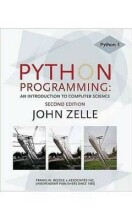Social contracts, constitutions, Pareto improvement and rights
4 important questions on Social contracts, constitutions, Pareto improvement and rights
Rawls’s theory of justice
•Natural talents •Tastes •Social position •Income •Wealth
all social values are to be distributed equally unless an unequal distribution of these values is to everyone’s advantage
The constitution as a utilitarian contract
Constitutional stage
Political stage
The constitution as a utilitarian contract: critique
The decisions taken there extend to future generations. Can such decisions morally bind future generations?
- Higher grades + faster learning
- Never study anything twice
- 100% sure, 100% understanding
Sen’s result on the potential conflict between individual rights (personal liberty) and the Pareto principle
1.There are certain individual rights that should be respected.
2.The Pareto principle should be respected.
3.The unrestricted domain condition should be respected.
The question on the page originate from the summary of the following study material:
- A unique study and practice tool
- Never study anything twice again
- Get the grades you hope for
- 100% sure, 100% understanding
































